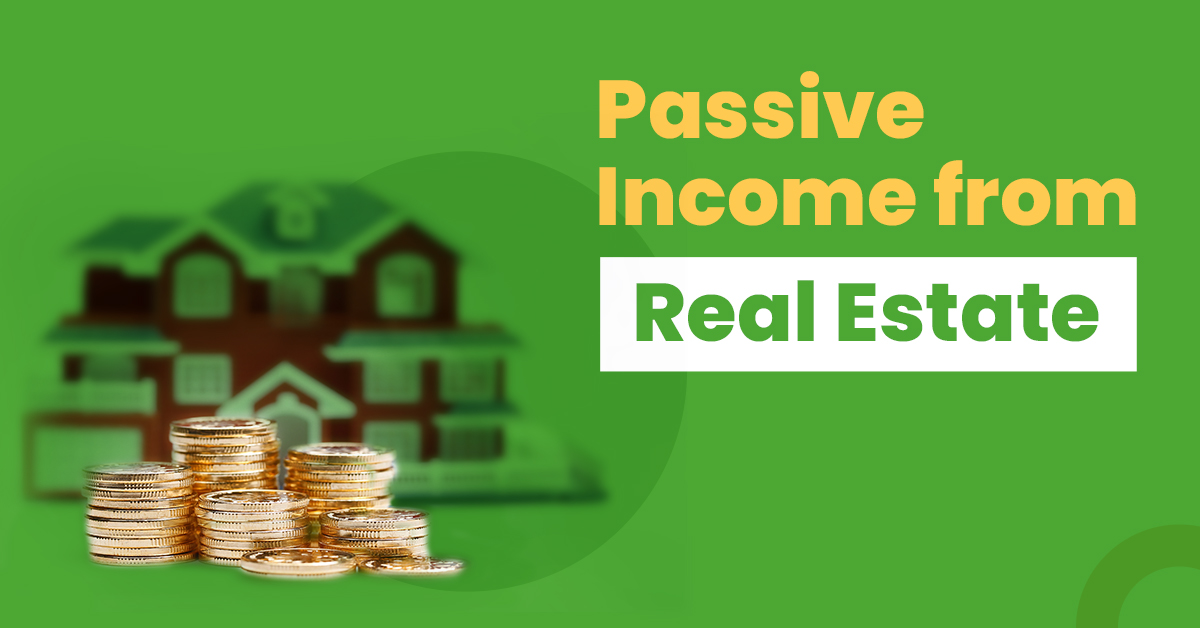Passive income is a dream for many. It’s the idea of earning money with little daily effort. Real estate has become one of the most effective ways to build a steady passive income. With the right strategy, real estate can provide regular cash flow, long-term growth, and financial security. This guide will explore various ways to generate passive income through real estate and key factors to consider for success.
What is Passive Income in Real Estate?
Passive income in real estate is money earned without actively working day-to-day. This income comes from owning assets like properties that produce regular cash flow. In real estate, you might rent out a property and collect monthly rent, or invest in funds that pay dividends. Unlike active income, which requires constant effort, passive income allows you to enjoy a return on your investment with less ongoing involvement.
Types of Real Estate Passive Income Investments
Rental Properties
Rental properties are one of the most popular ways to earn passive income. By owning a residential or commercial property, you can rent it out and receive monthly payments from tenants. This rental income can provide a steady cash flow. Rental properties may require some initial setup, but with the right property management, they can generate reliable passive income over time.
Real Estate Investment Trusts (REITs)
REITs are a simple way to invest in real estate without owning physical property. A REIT is a company that owns or finances income-generating real estate. By investing in a REIT, you earn a share of the income produced. REITs trade on the stock market, making them accessible and easy to buy or sell. They offer a low-maintenance option for earning passive income through real estate.
Crowdfunding Platforms
Real estate crowdfunding lets people invest smaller amounts in large projects. You join other investors to fund a property, such as an apartment complex or commercial building. In return, you receive a portion of the income the property generates. Crowdfunding makes real estate investing more affordable and opens up high-value opportunities to those without large capital.
Real Estate Syndications
Real estate syndications are similar to crowdfunding, but usually involve a smaller group of investors. A syndication is a partnership where multiple investors pool money to buy a property. The partnership then shares the profits. While syndications require more research and sometimes higher investments, they can offer larger returns and more control over specific properties.
Short-Term Rentals
Short-term rentals, such as those on Airbnb, offer another route to passive income. These rentals are ideal for properties in tourist areas or popular cities. You can rent out a property or even a room to travelers for short stays. Short-term rentals can yield higher returns than long-term leases, especially if managed professionally, making them a great option for passive income.
How to Choose the Right Real Estate Investment
Choosing the right investment requires some planning. Consider your risk tolerance, financial goals, and available time. For hands-off income, REITs and crowdfunding are ideal. If you’re comfortable with some management tasks, rental properties may work. Evaluate each option’s time and financial commitment. Make sure to pick properties in locations with high demand for rentals, as they are more likely to provide steady income.
Setting Up a Rental Property for Passive Income
Setting up a rental property can take a bit of work initially. The first steps include purchasing, financing, and preparing the property for tenants. Tenant screening is essential to find reliable renters. Hiring a property manager can make rental income more passive by handling tasks like maintenance, rent collection, and tenant issues. This setup ensures the property operates smoothly without much direct involvement, allowing you to enjoy consistent passive income.
Benefits of Real Estate as a Passive Income Source
Steady Cash Flow
One of the biggest advantages of real estate is its steady cash flow. Monthly rent payments provide regular income, which can cover expenses and create extra savings. Rental income offers financial stability and can even grow over time as rents increase. This steady cash flow makes real estate a strong choice for passive income seekers.
Tax Advantages
Real estate offers several tax benefits. Property owners can deduct expenses like mortgage interest, property taxes, and maintenance costs. Depreciation also allows for additional tax savings, even as the property value increases. These tax benefits make real estate an attractive option, helping investors keep more of their income while building wealth.
Long-Term Appreciation
Beyond monthly income, real estate often appreciates in value over time. Property values tend to increase as demand grows, especially in popular areas. This appreciation adds to the long-term value of your investment, making real estate a smart choice for building wealth. Even if you don’t plan to sell, a property that appreciates provides financial security and future flexibility.
Inflation Hedge
Real estate serves as a hedge against inflation. As prices rise, so do property values and rental income, helping investors keep pace with inflation. This protection keeps your investment strong even during economic changes. Real estate’s ability to maintain or increase value makes it one of the most reliable investments during inflationary periods.
Challenges to Consider in Passive Real Estate Investments
While rewarding, real estate investing has its challenges. Vacancies can reduce income, especially if it takes time to find new tenants. Maintenance costs can also affect cash flow. Market downturns may lower property values temporarily. Initial capital requirements can be high, depending on the investment type. Preparing for these challenges and maintaining an emergency fund can help minimize risks and ensure steady income.
Also Read: World Best Business Opportunity
Tips for Maximizing Passive Income from Real Estate
Maximizing income from real estate takes a few strategic steps. Regular maintenance keeps tenants happy, reduces vacancies, and keeps properties in good condition. Setting the right rental rates attracts quality tenants and ensures steady cash flow. Diversifying investments across different property types or locations can help reduce risks and increase income potential. Staying proactive and organized ensures that your investment continues to yield strong returns over time.
Conclusion
Real estate offers an excellent path to passive income, providing stability, growth, and tax benefits. From rental properties to REITs, there are options to fit different goals and risk levels. With careful planning and wise choices, real estate can become a long-term source of financial security and income. Whether you’re looking to invest in properties or join a REIT, real estate has the potential to make passive income achievable and rewarding.






